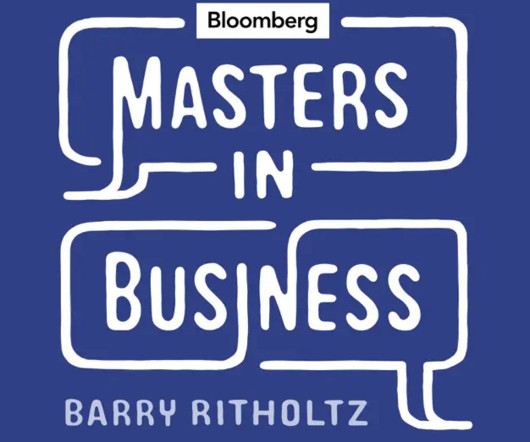Apple’s Long Strange Trip to A $2T Valuation
PYMNTS
AUGUST 11, 2020
Apple is on the cusp of a stock market first — becoming the first public company in history to capture a $2 trillion valuation. More than a 20 years later, the company is spitting distance from a $2 trillion valuation. So, will Apple make it to a $2 trillion valuation? Apple stock is trading at about $446 as of Tuesday (Aug.














Let's personalize your content